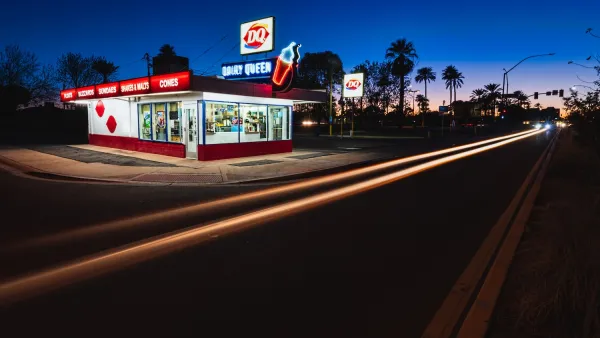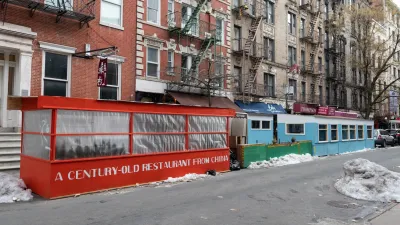High platform fees for food delivery apps have put struggling restaurants between a rock and a hard place.

With many restaurants across the country closing their dining rooms under stay-at-home orders to contain the spread of COVID-19, delivery has been one remaining lifeline for struggling food businesses. But with apps like DoorDash charging huge service fees, restaurants struggle to make a profit in an industry that already operates on razor-thin margins. Some cities have started putting a cap on delivery app fees, which usually start at around 30%. Local ordinances passed in Cleveland, Chicago, Los Angeles, and a handful of other cities have limited the fees to 15-20%. Prior to New York City Council reining in delivery apps in May, restaurants could even be charged for phone calls that didn't result in an order.
The delivery fees are just one part of a disruptive new industry that cities are still trying to regulate. New York City Council Member Mark Gjonaj, who advocates for a permanent fee cap, also wants to see greater transparency and improved worker protections for delivery drivers. The patchwork of emergency regulations passed this year reveal the "tension between the delivery apps and the restaurants that benefit from their services," Camille Squires points out. "The fight to regulate Big Tech delivery apps will continue well beyond the pandemic."
FULL STORY: US cities rein in food delivery apps on behalf of embattled restaurants

Maui's Vacation Rental Debate Turns Ugly
Verbal attacks, misinformation campaigns and fistfights plague a high-stakes debate to convert thousands of vacation rentals into long-term housing.

Planetizen Federal Action Tracker
A weekly monitor of how Trump’s orders and actions are impacting planners and planning in America.

San Francisco Suspends Traffic Calming Amidst Record Deaths
Citing “a challenging fiscal landscape,” the city will cease the program on the heels of 42 traffic deaths, including 24 pedestrians.

Defunct Pittsburgh Power Plant to Become Residential Tower
A decommissioned steam heat plant will be redeveloped into almost 100 affordable housing units.

Trump Prompts Restructuring of Transportation Research Board in “Unprecedented Overreach”
The TRB has eliminated more than half of its committees including those focused on climate, equity, and cities.

Amtrak Rolls Out New Orleans to Alabama “Mardi Gras” Train
The new service will operate morning and evening departures between Mobile and New Orleans.
Urban Design for Planners 1: Software Tools
This six-course series explores essential urban design concepts using open source software and equips planners with the tools they need to participate fully in the urban design process.
Planning for Universal Design
Learn the tools for implementing Universal Design in planning regulations.
Heyer Gruel & Associates PA
JM Goldson LLC
Custer County Colorado
City of Camden Redevelopment Agency
City of Astoria
Transportation Research & Education Center (TREC) at Portland State University
Jefferson Parish Government
Camden Redevelopment Agency
City of Claremont





























